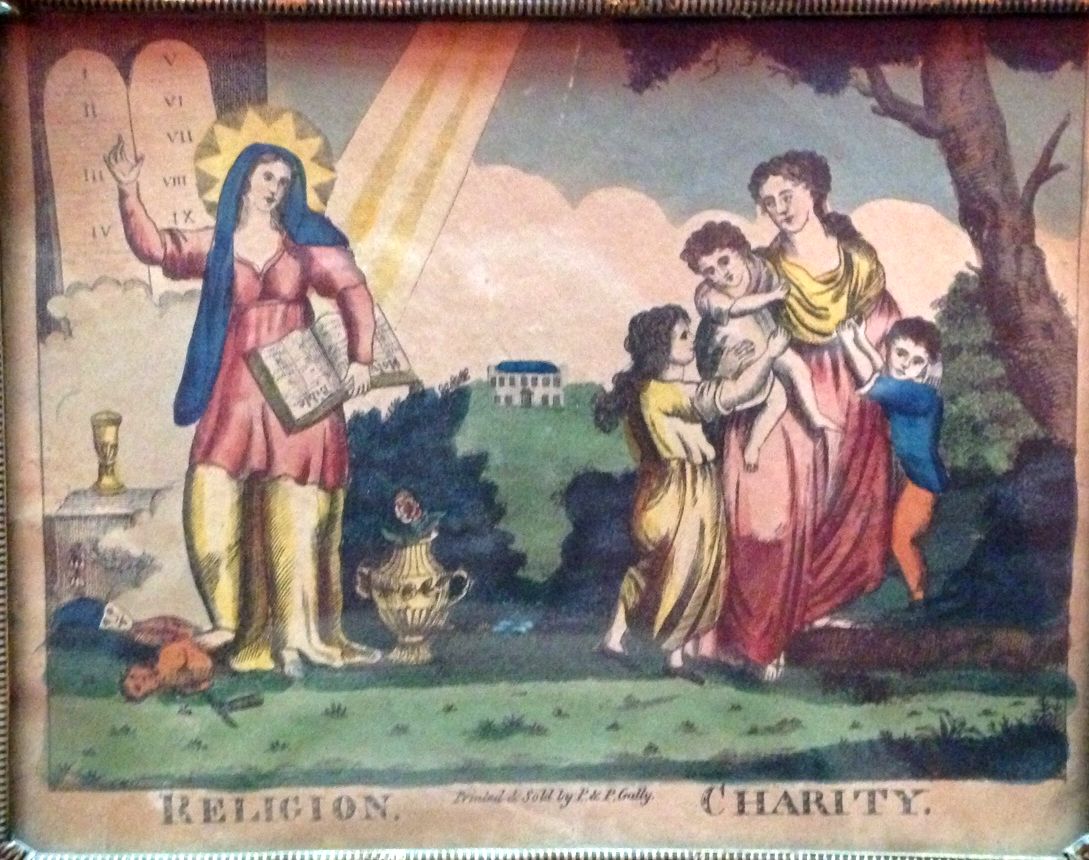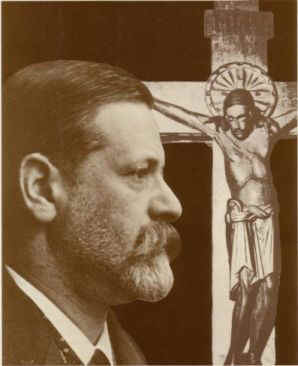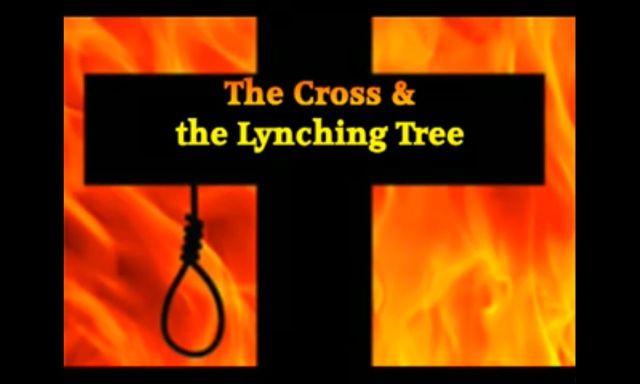Prof. Donald
L. Carveth
York
University, Glendon College
Department of Sociology
2275 Bayview Avenue
Toronto, Canada
M4N3M6
Email: dcarveth@yorku.ca
Telephone:
647-427-1480
"It is not up to us to believe in God, but only to not grant our love to false gods."
Since a benign conspiracy is just the flip side of a malign conspiracy, best to forego conspiracy theory and get on with the job of loving.
What
can I give Him,
Poor as I am?
If I were a shepherd
I would bring a lamb,
If I were a wise man
I would do my part,
Yet what I can I give Him,
Give my heart.
--Christina Rossetti (1872)
Come all you broken hearted
Come and lay your burden down
Come kings and queens
Come royalty surrender up your crown
Come empty handed
Come with nothing of your own to claim
Come naked poor come like a child
To ride the orphan train
Come ride ride on the orphan train
Put your ear to the track
You can hear your name
Come ride ride on the orphan train
It'll take you all the way home
The way is narrow it is steep
That brings you to the door
But love awaits there to embrace
Your heart forevermore
Come you abandoned you forsaken
Friendless and alone
Come refugees left homesick for
Some place you've never known
Here princes paupers criminals
And saints are all the same
No more or less than
God's beloved child aboard this train
Come ride ride on the orphan train
Written by Julie Anne Miller • Copyright © BMG Rights Management US, LLC
Just as it is important to distinguish charity from religion, so it is crucial not to confuse conscience with the superego, for people have often been led by religion and the superego to act unconscionably.

(A Nietzschean Critique of Gnostic Christianity)
Preacher
by Ray
Wylie Hubbard
Preacher come by today
A preacher come by today
He talked a whole lot
I didn't have much to say
He told me of a place where the streets is gold
Told me of a place where the streets're gold
Went on to say that God and the Devil
Both want my soul
Said my life was empty
Somethin' was missin'
Said my life was empty
Somethin' was missin'
Carried on and on
About how a Saviour lived in a world above this' un’
***
My
woman, she was hangin' clothes on the line
My woman, she was hangin' clothes on the line
I said look out yonder Preacher
An’ tell me, have you ever seen anythin' as fine?
See how she moves slow
See how she moves slow
You see I ain't missin' nothin'
When she stoop down low
Preacher closed his Bible
And he put his hat on his head
He closed his Bible
And he put his hat on his head
He took off down the road
Must have been somethin' I said
Carveth, D. (2016). Review of Psychological Perspectives on Religion and Religiosity by Benjamin Beit-Hallahmi. London & New York: Routledge, 2015. Journal of Psychohistory (Fall, 2016).
From Terry Eagleton's (2009) Reason, Faith and Revolution.
"Jesus, unlike most responsible American citizens, appears to do no work, and is accused of being a glutton and a drunkard. He is presented as homeless, propertyless, celibate, peripatetic, socially marginal, disdainful of kinsfolk, without a trade, a friend of outcasts and pariahs, averse to material possessions, without fear for his own safety, careless about purity regulations, critical of traditional authority, a thorn in the side of the Establishment, and a scourge of the rich and powerful. Though he was no revolutionary in the modern sense of the term, he has something of the lifestyle of one. He sounds like a cross between a hippie and a guerilla fighter. He respects the Sabbath not because it means going to church but because it represents a temporary escape from the burden of labor. The Sabbath is about resting, not religion. One of the best reasons for being a Christian, as for being a socialist, is that you don't like having to work, and reject the fearful idolatry of it so rife in countries like the United States. Truly civilized societies do not hold predawn power breakfasts" (pp. 10-11).
"The only authentic image of this violently loving God is a tortured and executed political criminal, who dies in an act of solidarity with what the Bible calls the anawim, meaning the destitute and dispossessed. ... The anawim, in Pauline phrase, are the shit of the earth--the scum and refuse of society who constitute the cornerstone of the new form of human life known as the kingdom of God. Jesus himself is consistently presented as their representative. His death and descent into hell is a voyage into madness, terror, absurdity, and self-dispossession, since only a revolution that cuts that deep can answer to our dismal condition. What is at stake here is not a prudently reformist project of pouring new wine into old bottles, but an avant-gardist epiphany of the absolutely new--of a regime so revolutionary as to surpass all image and utterance, a reign of justice and fellowship which for the Gospel writers is even now striking into this bankrupt, dépassé, washed-up world. No middle ground is permitted here: the choice between justice and the powers of this world is stark and absolute, a matter of fundamental conflict and antithesis. What is at issue is a slashing sword, not peace, consensus, and negotiation. Jesus does not seem to be any sort of liberal, which is no doubt one grudge Ditchkins holds against him. He would not make a good committee man. Neither would he go down well on Wall Street, just as he did not go down well among the money changers of the Jerusalem temple" (pp. 23-24).
"I like your Christ,
I do not like your Christians. Your Christians are so unlike your
Christ."--Mohandas Ghandi.
"No man's really any good till he knows how bad he is, or might be; till he's realized how much right he has to all this talk about 'criminals,' as if they were apes in a forest ten thousand miles away; till he's got rid of all the dirty self-deception of talking about low types and deficient skills; till he's squeezed out the last drop of the oil of the Pharisees; till his only hope is somehow or other to have captured one criminal, and kept him safe and sane under his own hat."
--G. K. Chesterton, The Secret of Father Brown
On the Ethical Suspension of the Religious
Kierkegaard (1843) associated the
ethic of rules with conventional morality and believed the “knight of faith”
was sometimes, like Abraham, called by God to engage in a “religious suspension
of the ethical,” to break with the law of men out of loyalty to the higher law
of God—even a God who demands infanticide, though who, in this instance,
relented and accepted an animal sacrifice instead. Given mankind’s long history
of religiously motivated violence, and our experience of terrorism of all kinds
and in all traditions, this is an idea I find frightening. If I hear a voice
calling Abraham to sacrifice Isaac, how am I to know the voice is God’s and not
Satan’s, or a hallucination, and how am I to know whether this Abraham is me? According to Kierkegaard (1849), “to have faith is precisely to
lose one’s mind so as to win God” (p. 68). He dismissed rational
objections to faith as sheer disobedience: “It is therefore certain and true
that the first person who thought of defending Christianity in Christendom is de facto a Judas No. 2; he too betrays
with a kiss, except his treason is that of stupidity. To
defend something is always to discredit it” (p. 119). This is an
attitude one finds echoed to some degree in the emphasis upon “simple obedience”
in Bonhoeffer’s (1937) Discipleship:
“The forces that wanted to get between the word of Jesus and obedience were
just as great back then as they are today. Reason objected; Conscience,
responsibility, piety, even the law and the principle of Scripture intervened
to inhibit this most extreme, this lawless ‘enthusiasm.’ Jesus’ call broke
through all of this and mandated obedience. It was God’s own word. Simple obedience was required” (p. 77). It is important to
note that in his later Letters and Papers
from Prison, Bonhoeffer (1953) distanced himself
to some extent from his earlier attitude: “I thought I could acquire faith by
trying to live a holy life, or something like it. It was in this phase that I
wrote The Cost of Discipleship. Today
I can see the dangers of this book, though I am prepared stand by what I wrote”
(p. 125).
In my view it is crucial not to
confuse conscience with either the laws of men or the laws of “God,” let alone
with the superego, for sometimes people are called upon by the superego, the
law, and what they take to be God to act unconscionably. Whenever one feels
called by “God,” the superego, or the law, to act unconscionably, it is time to
exchange one’s love of “God,” or the law, for love of one’s fellow human
beings, and to subordinate one’s superego to one’s conscience. Hence, following
the Bonhoeffer of the Letters and Papers
from Prison as distinct from the Bonhoeffer of Discipleship, I wish to replace Kierkegaard’s “religious suspension
of the ethical” with what I think of as the
ethical suspension of the religious—suspending superego in favour of
conscience—i.e., identification with the nurturer—whether or not one symbolizes
the latter as the call of Christ.
Paralleling Freud’s statement that “He who has neither science nor art,
let him have religion,” one might be tempted to say “He who has no conscience,
let him have a superego,” if it were not for the fact that neither a superego
nor religion will help those in whom conscience is repressed, for neither
religion nor the superego are up to the job. Apart from conscience the superego
knows only how to hate and punish. And without conscience religion inevitably
takes an authoritarian and “superegoic” form. But one
need not fear the psychic revolution entailed in displacing and disempowering
the superego in favour of conscience. Although such transformation must entail
“a traumatic breaking down and remaking for which the Christian term is
conversion” (Eagleton, 2010, p. 17), it results in the emergence, like a rose e’er blooming,
of a conscience, the yoke of which is easy and the burden of which is light (Matt.
11:30).
While Christianity provides a wonderful articulation of the universal ethic of charity--i.e., of conscience--there are
many people of conscience who are not Christians and many so-called Christians who demonstrate little conscience.

Cover of Freud's Christian
Unconscious by Paul Vitz
"It is not for nothing that in saying grace before meals, Christians use the words,
'For what we are about to receive may the Lord make us truly thankful.'
The words imply that one asks for the one quality--gratitude--
which will make one free from resentment and envy."
-- Melanie Klein, Our Adult World and Its Roots in Infancy, 1959
"The trouble with atheism is there's no one to thank."
--Anon.
The trouble with religion is that it has tended to lead to a lot more than gratitude.
When I go don't cry for me
In my fathers arms I'll be
The wounds this world left on my soul
Will all be healed and I'll be whole
Sun and moon will be replaced
With the light of Jesus' face
And I will not be ashamed
For my savior knows my name
It don't matter where you bury me
I'll be home and I'll be free
It don't matter where I lay
All my tears be washed away
Gold and silver blind the eye
Temporary riches lie
Come and eat from heaven's store
Come and drink and thirst no more
So weep not for me my friend
When my time below does end
For my life belongs to him
Who will raise the dead again
It don't matter where you bury me
I'll be home and I'll be free
It don't matter where I lay
All my tears be washed away
Written by Julie Miller • Copyright © Warner/Chappell Music, Inc

Home | Publications | Reviews | Practice | Courses | Psychoanalysis | Existentialism |
Religion | Links

.jpg)
